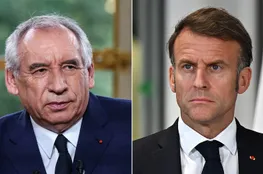Crypto investors are starting to question the investment opportunity in Ether. Previously seen as a blockchain with a strong and understandable value proposition, Ethereum's role as a smart contracts platform powering diverse applications is being scrutinized. Investors are now contemplating the possibility that Ether may have lost some of its allure, while Bitcoin's attractiveness continues to be compelling. Ether, the second-largest cryptocurrency by market cap, is almost 50% below its all-time high. Since the Merge two years ago, it has underperformed Bitcoin by 44% and hasn't mirrored Bitcoin's rally in March to a new record this year. Meanwhile, Ether ETFs experienced nine consecutive days of outflows totaling $115 million from August 15 to 27 and have seen net outflows overall since their July launch.
On the other hand, Bitcoin ETFs had inflows on eight of those nine August days, accumulating $427 million, and showed strong inflows in the initial five weeks after their January launch. David Duong, head of institutional research at Coinbase, suggested that the complexity in educating new investors about Ethereum's supply schedule and smart contract utility, coupled with the lack of staking yields, might be contributing to the diminished interest in ETH ETFs. Sentiment among crypto-native investors could also have been dampened by the fading narratives from previous bull cycles, such as deflationary 'ultra sound money,' and the emergence of strong competitors like Solana. Currently, Ether is down 2% this year, whereas Solana's SOL token has gained 20%, and Bitcoin is up 25%. The ETH/BTC ratio, an indicator reflecting Ether's relative value compared to Bitcoin, is at its lowest level since April 2021.
Mike Colonnese, an analyst at H.C. Wainwright, stated there isn't a particularly strong investment case for ETH at the moment, noting that institutional investor demand has been mainly for Bitcoin, which has a more straightforward and understandable supply schedule. Bitcoin is widely accepted as a store-of-value currency. According to Julio Moreno, head of research at CryptoQuant, other potential use cases for Bitcoin are not as clearly defined. In contrast, Ethereum has evolved its narrative multiple times, from being a world computer for decentralized applications, to a DeFi layer, to 'ultra sound' money, which might confuse traditional investors. DeFi protocols dominate Ethereum's activity. Citi recently highlighted that DeFi activity in ETH terms is 63% above recent lows and has seen highs from the first half of 2023.
However, the Ethereum community is debating the DeFi sector's utility and whether it can significantly drive growth on the blockchain. Ethereum co-founder Vitalik Buterin recently mentioned that while DeFi is promising, it is dependent on the broader ETH market, limiting its potential to drive massive adoption. Nonetheless, Duong emphasized that Ethereum remains a neutral developer platform, and the growth of sectors like the tokenization of real-world assets is making encouraging progress. Unique daily users on Ethereum are up over 150% across Layer 1 and Layer 2 networks compared to 2023 averages, according to Citi. Despite this, Ethereum's transaction fee revenue is at multiyear lows, and its role as 'ultra sound money' is uncertain due to rising supply. The Merge, a 2022 upgrade, was intended to enhance energy efficiency and slow supply growth. However, Ether's supply has been rising rapidly and may return to pre-Merge levels within three months, according to CryptoQuant.
























